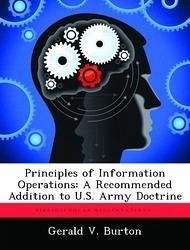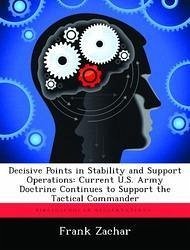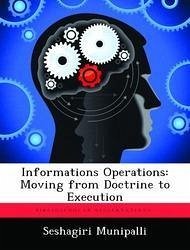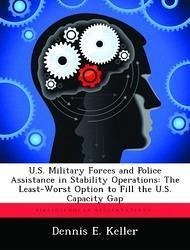Nicht lieferbar

Principles of Information Operations: A Recommended Addition to U.S. Army Doctrine
Versandkostenfrei!
Nicht lieferbar
This monograph seeks to discover whether or not existing U.S., Russian, and Chinese doctrine and theory can provide the sought after guidance on combining IO elements. The answer is yes. An analysis of all three nations'; writings on IO, and synthesis of the related ideas, shows they do offer potential solutions to the problem. These solutions are offered as recommended improvements to the ongoing Army IO doctrine debate. The monograph subscribes to the idea that IO is an integrating strategy, relating means to ends. Combining the elements is the essential part of this strategy, and must be gu...
This monograph seeks to discover whether or not existing U.S., Russian, and Chinese doctrine and theory can provide the sought after guidance on combining IO elements. The answer is yes. An analysis of all three nations'; writings on IO, and synthesis of the related ideas, shows they do offer potential solutions to the problem. These solutions are offered as recommended improvements to the ongoing Army IO doctrine debate. The monograph subscribes to the idea that IO is an integrating strategy, relating means to ends. Combining the elements is the essential part of this strategy, and must be guided by six principles. First, commanders and staffs must understand and leverage all three domains of IO: physical, cognitive and information. Second, they must use a systems approach to understand the environment. Third, commanders and staffs must use an effects based approach for relating means to ends and for recognizing the outcomes of actions, both desirable and undesirable. Fourth, they must use analogues to develop targets. Fifth, commanders and staffs must arrange IO activities in time, space and purpose to mass effects. Sixth, they must leverage ISR to support planning, preparing, executing and assessing IO. In making the case for these principles, the monograph covers several key areas. It discusses the IO environment in relation to the problem. It explains the three domains, provides a basic understanding of open systems, and shows how applying an effects-based methodology to IO can benefit the Army. Several models are also proposed to assist in target selection and arranging IO activities in time, space and purpose. Overall, the monograph offers concrete recommendations for how to think about combining the IO elements (and related activities), which is the heart of IO as an integrating strategy. Adopting the recommended principles can help the Army conduct IO more effectively. With effective IO, the Army is much more likely to be decisive in all its missions.






